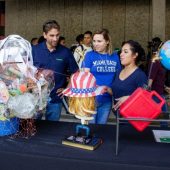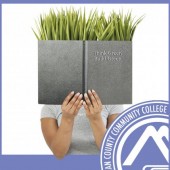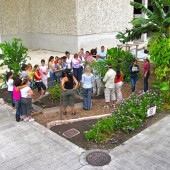
Abstract: One way to disrupt traditional Eurocentric teaching practices is through modifying curriculum in classes. Particularly, in an English Composition 101 course, an ongoing assignment called the Poetry Journal may assist students in thinking critically and reflexively. The concept was inspired by a high school English teacher, Brett Vogelsinger (2016), called “4 Reasons to Start Class with a Poem Each Day.” His four reasons: 1. Poems are short; 2. Poems are intense; 3. Poems connect (to other readings); 4. Poems inspire (writing). When building the assignment for a community college class, an instructor may make intentional (disruptive) choices for the poems. This article explores the project, which is grounded in culturally sustaining (Paris, 2021) and disruptive pedagogies (San Pedro, 2018)—both of which encourage the rethinking and dismantling of traditional Eurocentric-based instruction—and how the author (full-time faculty at a community college) applied said pedagogies to a specific in-class student activity to engage students in critical and reflexive thinking.
Continue Reading
A semester-long ESL curriculum centered on the impacts of climate change was conceptualized and implemented at a community college English for Academic Purposes program in South Florida during the 2018-2019 academic year. After reading the 2018 IPCC report, a sense of urgency led to assembling and developing relevant materials, applying and extending lesson plans, creating collaborative projects to foster student engagement, and participating in professional development to help students acquire the necessary language skills and climate change-related content knowledge they need to understand and address the challenges their community is facing.
Continue ReadingFor the past seven years, I have been creating and facilitating professional development workshops focusing on Earth literacy and sustainability for faculty at Miami Dade College (MDC), Florida, the largest community college in the United States. With the support of the college’s Earth Ethics Institute, I organize a lunch and learn series called Wisdom Luncheons, oversee an organic campus garden project, facilitate workshops on sustainability education, and teach graduate classes focusing on sustainability, globalization, education, and Earth literacy for our faculty. 175,000 students currently attend MDC, so the potential to transform the community through education is enormous. It is no surprise then that ideas about sustainability education swirl through my head during most waking hours, and occasionally, they occupy my dreams as well.
Continue Reading
PDF: le Roux Ohm Winter2013 Abstract: Drawing on various dimensions of place, pedagogies of place, and the relationship between place and design, this article presents a case study of place-based learning in a career-oriented higher education program—the Green Building Maintenance and Management program at SUNY Sullivan. This program is rooted in the Catskills, an iconic […]
Continue Reading
In this fascinating case study from Miami Dade College, Anouchka provides us with a detailed and subtle look at the effects of a simple school garden on her students. The garden’s potential to build a sense of community and place as well as a new environmental ethic is developed through vivid vignettes woven throughout the description of how Anouchka and her colleagues launched the project. The garden project described is a powerful example of complex, interdisciplinary teaching that also takes advantage of the college’s physical campus to foster experiential learning and cultural exchange. Whether or not readers are involved in similar projects, this story is important for its illustration of the interconnectivity and endless learning possible in any discipline from a connection to the living earth.
Continue Reading